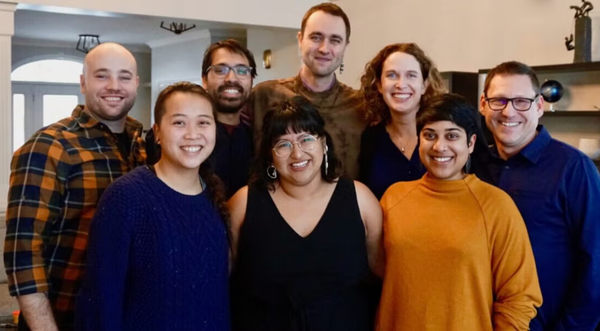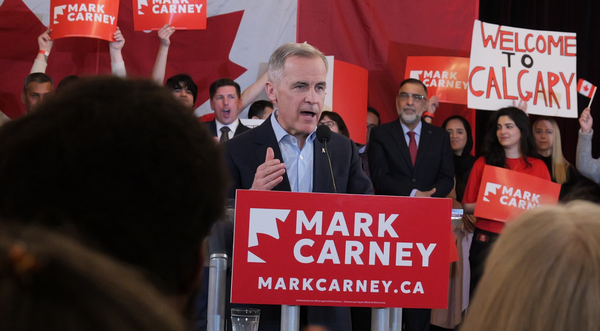ADAMS: Keep Pride Focused on LGBTQ Rights
Fae Johnstone's recent op-ed in the Ottawa Citizen defending her involvement in the disruption of Capital Pride 2025 was as misguided as it was divisive. As a proud member of the LGBTQ community and a lifelong advocate for human rights, I must address the core of her argument, which suggests that Pride, in its “political and activist” nature, is fair game for any group to commandeer for unrelated causes.
First and foremost, let's acknowledge a simple truth: Pride is, indeed, political. But it is political in the way every celebration of LGBTQ identity must be. Pride began as a rebellion—a protest against systemic oppression, violence, and discrimination. It's rooted in the struggles for basic human rights, dignity, and safety for queer people. The history of Pride is a history of solidarity and shared struggle, not a platform for every cause under the sun.
Johnstone's claim that the political nature of Pride makes it a space for contentious, unrelated causes is not only a misreading of Pride's purpose but a dangerous proposition. If we accept this logic, then what's to stop any group from hijacking Pride for their own political aims? Pride could easily become a platform for messages that undermine the very foundations of LGBTQ rights, a far cry from the inclusive space it strives to be.
One need only look at the history of Pride events around the world to understand that we've learned the hard way how to respect the boundaries of movements. We do not see pro-Ukrainian voices taking over Pride parades to call attention to Russia's brutal invasion, nor do we see pro-Taiwan advocates hijacking Pride to push their geopolitical views on the global stage. This is because the LGBTQ community, by and large, understands that activism is most effective when it is focused, strategic, and most importantly, relevant to the issues at hand.
Johnstone's argument, in essence, suggests that Pride is a blank slate, a political playground. This is not only illogical; it is reckless. Pride parades are not a general-purpose megaphone for any activist cause that happens to resonate with one person's politics. Pride is for the LGBTQ community—those who have fought and continue to fight for recognition, equality, and the basic human dignity that so many still deny us.
Now, let's be clear on the issue Johnstone is attempting to leverage: the pro-Palestinian, anti-Zionist cause. I am a strong advocate for the rights of all oppressed peoples, and I stand firmly against any form of violence, including the atrocities that have unfolded in Palestine. The struggle for self-determination and human dignity is fundamental, and every person on earth deserves these rights. But to suggest that Pride should be hijacked to further this cause is to ignore the very real and troubling reality that many LGBTQ people, including trans women like Fae Johnstone, face in the region.
Palestinian society, like many others in the Middle East, remains deeply homophobic and transphobic. It is not Islamophobic to point out the reality that LGBTQ people are not only marginalized but also violently persecuted in that part of the world. If Johnstone were to travel to Palestine and present as a woman, the violent repression she would face would make it painfully clear that Palestinian rights and LGBTQ rights are, for now, worlds apart.
We must be cautious when we decide to link causes together in a way that diminishes the struggles of one group to elevate another. The anti-Zionist cause, while just in many respects, is not a stand-in for the fight for LGBTQ equality, and it is disingenuous to suggest otherwise. Just as we would never see anyone arguing for Palestinian rights by taking over other specific events, we cannot allow Pride to become a battlefield for causes that, however noble, do not align with its core mission.
At its heart, Johnstone's piece was less about political solidarity and more about using emotion to justify actions that disrupt a cherished event for countless LGBTQ Canadians. Pride is not a monolith, but it is a shared space. By shutting down Pride parades, Johnstone failed to respect that the parade belongs to those of us who have fought for this space: queer folks, trans folks, people of colour, disabled people, and others who often face erasure in larger societal debates.
To claim, as Johnstone did, that Pride must be open to all causes regardless of their relevance to the LGBTQ community is to misunderstand the very concept of solidarity. Real solidarity means knowing when to stand up for others, but also knowing when to respect the work and spaces others have built. Disrupting Pride is not solidarity; it is opportunism at its worst.
There's no shame in standing up for Palestinian rights, just as there's no shame in advocating for LGBTQ rights. But they are different struggles, and we must respect the boundaries of each. Disrupting Pride did nothing to further either cause. It simply divided a community that has long fought to create its own space in a world that continually seeks to deny our humanity.
Let's stop pretending that all causes are equal or that Pride is an appropriate venue for every political struggle. It isn't. Let's refocus our efforts on what matters: ensuring that LGBTQ people, in Canada and abroad, are not only accepted but are free to live their lives without fear or violence. If Johnstone truly believes in solidarity, she'll recognize that hijacking Pride undermines the very work that many of us have spent decades trying to achieve.
This piece was written by an individual contributor and reflects the editorial position of The Provincial Times and Left Lane Media Group. Read our Content Policy here.





